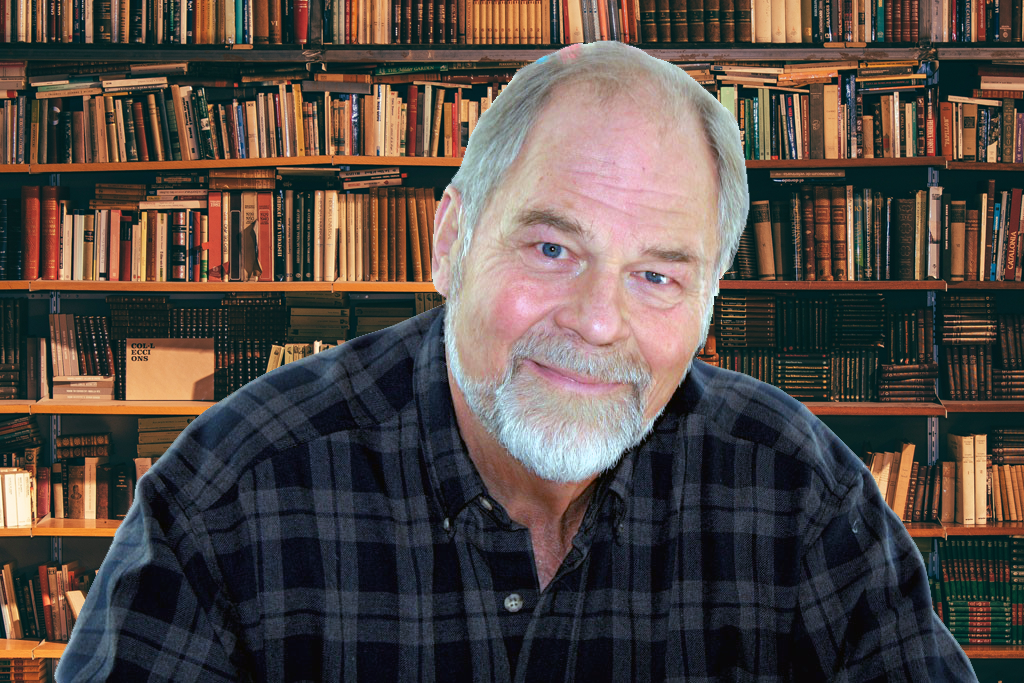On becoming my state’s poet laureate, I made it my mission to visit as many of its community libraries as I could. I paid many, many such visits, and savored each and all. Certain colleagues at the “prestige” colleges where I taught for over forty years seem always to have surmised that intelligence faded the moment one stepped away from an ivied campus. I always knew that attitude represented the worst sort of provincialism. I am the more assured in that knowledge for the library trips I’ve made, the more persuaded that there are a lot of smart people out there, however extensive or otherwise their formal education. Perhaps certain of the scholars would do well to spend time among them.
I’ve especially enjoyed that my audience members tend to ask not the allegedly sophisticated questions, which I’ve heard more than enough of in four decades of professorship; their questions are more basic, and thus more important, in that they represent concerns that everyone feels on contemplating a poem for the first time: who’s talking? why? where? And so on. For my taste, too much current poetry can’t answer those questions on the page, and even as a lifelong lover of poetry, I turn away from such work’s obscurantism.
The most frequent questions I hear, however, involve form and meter. There are those who wonder if something can be called poetry if it does not have a regular meter, regular stanzaic shape, and often as not, a rhyme scheme.
Now I am a formalist myself, something not all that common in our day (though I think and even hope this is unobvious when I read, because I pause in my recitation when the grammar does, not when a line does). I even use a goodly amount of rhyme and half-rhyme. And yet I employ these tools merely because they enable me, not because they represent capital-P Poetry.
Indeed, I steadfastly refuse to grind any ax in the free verse/formal verse debate, partly since it seems to it make advocates on either side suddenly go brain-dead. Of course poetry can exist in an unrhymed and unmetered format: consider, to pick an ancient and glaring example, the biblical Psalms. Of course poetry can be formally constrained without being “academic”: never mind my own small example; consider Robert Frost, a die-hard formalist…who managed to capture the sound of actual speech far more effectively than an Ezra Pound ever did.
The passionate free-versers may believe that their mode is anti-establishment, a claim that could be made for it if this were 1920; since then, and surely now, free verse reigns supreme in virtually every academic MFA program and among the most celebrated poets of our time. In short, it is the establishment practice.
The other sect of blind debaters, however, alleges that free verse shows sloppy thinking, shoddy technique – as if that applied, say, to Robert Lowell or, more contemporarily, to Louise Gluck. In short, these aspersions are no more or less bright or accurate than those of the free-verse crusaders, who impute coldness, sexual frigidity, political reaction, and – again – “academicism” to formalist delivery — as if any of these charges were relevant to the giants of the twelve-bar Delta blues, a mode that is surely America’s greatest formal contribution to world culture, and whose format, in the words of my friend, the excellent Vermont poet Baron Wormser, constitutes the American sonnet.
As I hear the free vs. formal debate rehearsed, I am too depressingly reminded of political dialogue in our day. I am never shocked by the slogans on either side of the liberal/conservative divide. It’s as though there were no real need for any of us to look at a given issue from more angles than just one: we liberals already know what the conservatives are going to promote; but we fail to see how perfectly predictable our own orthodoxies are.
When I was appointed poet laureate, I claimed in my address that a little humility never hurt anyone. The humble but crucial questions I encounter at the state’s libraries assure me that there remain at least a few open minds in the nation.
